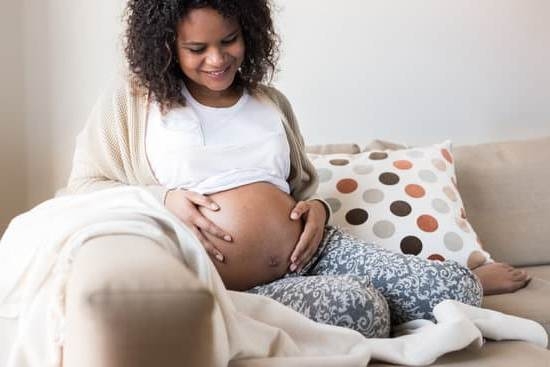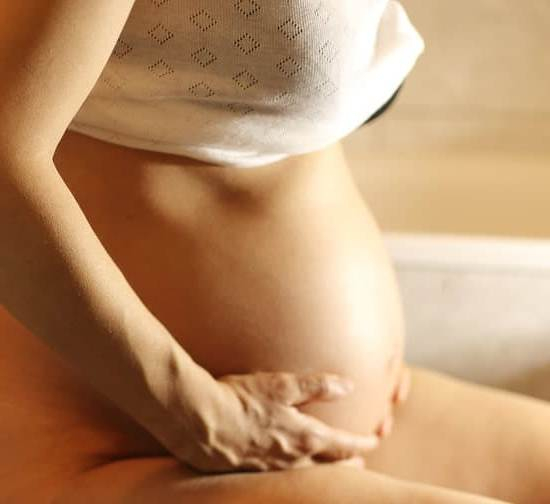In pregnancy, one of the most eagerly anticipated moments for expectant parents is when they first hear the heartbeat of their unborn child. The question of when does the heartbeat start in pregnancy is a crucial milestone that signifies the beginning of new life and brings immense joy and excitement to families. This article delves into the significance of the heartbeat in pregnancy, from early development stages to medical insights provided by professionals.
During early fetal development, the journey towards hearing that precious heartbeat begins. The formation of the heart starts as early as four weeks after conception, highlighting its importance in sustaining life within the womb. Understanding when this heartbeat becomes detectable offers valuable insight into the progress of the pregnancy and reassurance for soon-to-be parents. Medical professionals play a vital role in providing information about this crucial stage, guiding expectant parents through this incredible journey.
As we explore the timing of when the heartbeat first becomes detectable in pregnancy, it is essential to consider various factors that can influence this milestone. Factors such as maternal health, gestational age, and even genetic conditions can impact when the heartbeat is first heard.
Monitoring the fetal heartbeat throughout pregnancy enables doctors to ensure the well-being of both mother and baby, allowing for necessary interventions if any issues arise. The emotional impact of hearing that tiny rhythm for the first time cannot be understated, bringing a profound sense of connection for expectant parents with their unborn child.
Early Development
During pregnancy, the development of a new life is an incredible and intricate process. Understanding the stages leading up to when does heartbeat starts in pregnancy helps expectant parents appreciate the miracle of life even more. Here’s a breakdown of the early fetal development that precedes the beating heart:
- Weeks 1-3: At the very beginning of pregnancy, after conception occurs, the fertilized egg travels through the fallopian tube and implants itself into the uterine lining. During this time, important cellular divisions are taking place to form what will eventually become the baby.
- Weeks 4-5: By week 4, the embryo is about the size of a poppy seed but rapidly growing. The neural tube, which eventually becomes the brain and spinal cord, starts to form during this period. It is around this time that certain vital organs begin to develop as well.
- Weeks 6-7: At week 6, your baby’s heart begins to beat. Although it may not be audible yet, it is a significant milestone in prenatal development. The basic structure of major organs like kidneys and liver are also forming at this stage.
As we delve into fetal development prior to when does heartbeat start in pregnancy, it becomes evident just how remarkable and complex the process truly is. Each week brings new advancements for your growing baby, shaping them into a little human being with every passing day.
Timing of Heartbeat
The timing of when a heartbeat starts in pregnancy is a crucial milestone that expectant parents eagerly anticipate. In most pregnancies, the fetal heartbeat can be detected as early as 6 weeks gestation. This is usually done through an ultrasound, where the tiny flicker of the heart beating can be seen on the screen. It is incredible to witness this early sign of life and the beginning of a new chapter for parents-to-be.
The development of the fetal heart begins very early in pregnancy, around week 4 after conception. By week 5, the heart has already started to form into a tube-like structure and begins beating rhythmically. However, it may take a little bit longer for this heartbeat to become detectable through standard ultrasound techniques. Factors such as the position of the embryo and equipment used by healthcare providers can influence when exactly the heartbeat becomes visible on an ultrasound.
Medical professionals emphasize the significance of monitoring and detecting the fetal heartbeat early in pregnancy. It helps confirm that the pregnancy is viable and progressing as expected. The presence of a strong and steady heartbeat is reassuring for both parents and healthcare providers, indicating a healthy developing fetus. Additionally, tracking the fetal heartbeat throughout pregnancy allows doctors to ensure proper growth and development, providing valuable information for prenatal care.
| Week | Developmental Milestone |
|---|---|
| 4-5 | Fetal heart begins to form |
| 6 | Fetal heartbeat becomes detectable via ultrasound |
Medical Insights
During pregnancy, one of the most eagerly awaited moments for expectant parents is hearing the baby’s heartbeat for the first time. This significant milestone is often a moment of joy and relief, as it signals a healthy progression in the pregnancy journey. But when does the heartbeat actually start in pregnancy? According to medical professionals, the fetal heartbeat typically begins around week 6 of gestation.
To better understand the significance of the timing of the heartbeat in pregnancy, it’s important to consider the stages of early development leading up to this crucial moment. In the initial weeks after conception, the fertilized egg rapidly divides and implants itself into the uterine wall. By around week 5 or 6, when major organs are starting to form, including the heart. As blood vessels continue to develop and connect, a tiny but strong heartbeat emerges.
Medical professionals emphasize that detecting the fetal heartbeat around week 6 is a positive sign of a healthy pregnancy progression. Regular monitoring of the heartbeat throughout pregnancy allows healthcare providers to ensure that vital signs remain stable and track any potential concerns. The sound of that reassuring thump-thump can offer peace of mind to parents-to-be and build excitement as they prepare for their new family member’s arrival.
Factors Affecting Heartbeat
The question of when does heartbeat start in pregnancy is a crucial one, as it marks a significant milestone in the development of the fetus. The timing of when the heartbeat becomes detectable can be influenced by various factors. One such factor is the gestational age of the fetus. Typically, the heartbeat can be detected via ultrasound around 6 weeks gestation, but this can vary slightly from one pregnancy to another.
Another factor that can affect when the heartbeat starts in pregnancy is the position of the embryo within the uterus. If the embryo is not ideally positioned for an ultrasound to pick up the heartbeat, it may take a little longer to detect.
Additionally, maternal factors such as a tilted uterus or excess abdominal fat can also impact how early the heartbeat can be heard. It’s important to keep these variables in mind when expecting to hear that precious sound for the first time.
Overall, while knowing when does heartbeat start in pregnancy provides valuable insight into fetal development, it’s essential to understand that every pregnancy is unique. Factors such as genetics, overall health, and lifestyle choices can all play a role in influencing when exactly the heartbeat becomes audible. Monitoring and understanding these factors with your healthcare provider can help ensure a healthy and successful pregnancy journey.
| Factors Affecting Heartbeat | Effect on Timing |
|---|---|
| Gestational Age | Vary depending on individual pregnancies |
| Embryo Position | Ideal positioning aids early detection |
| Maternal Factors (Tilted Uterus, Abdominal Fat) | Can delay detection if present |
Monitoring the Heartbeat
During pregnancy, monitoring the fetal heartbeat is a crucial aspect of prenatal care. By keeping track of the baby’s heartbeat, doctors can ensure the well-being and development of the unborn child. Throughout each trimester, healthcare providers use various methods to monitor the fetal heartbeat, providing valuable insights into the baby’s health and progress.
Methods of Monitoring
One common method of monitoring the fetal heartbeat is through a handheld Doppler device. This non-invasive tool uses sound waves to detect and amplify the baby’s heartbeat, allowing both healthcare providers and parents to listen to the reassuring rhythm. Another method is through electronic fetal monitoring (EFM), which involves placing sensors on the mother’s abdomen to record the baby’s heart rate over an extended period.
Frequency of Monitoring
The frequency of monitoring the fetal heartbeat varies depending on several factors, such as maternal age, pre-existing medical conditions, and overall pregnancy health. Typically, healthcare providers will monitor the fetal heartbeat during regular prenatal check-ups throughout each trimester. In cases where there are risk factors or complications present, more frequent monitoring may be necessary to ensure the well-being of both mother and baby.
Importance of Monitoring
Monitoring the fetal heartbeat is essential for detecting any signs of distress or abnormalities early on in pregnancy. Changes in the baby’s heart rate can indicate potential issues that require further investigation or intervention. By closely tracking the fetal heartbeat throughout pregnancy, doctors can provide timely care and support to ensure a safe delivery and a healthy newborn.
Emotional Impact
The emotional impact of hearing the heartbeat for the first time can be a profound moment for expectant parents. It marks a significant milestone in the pregnancy journey, reinforcing the reality of the new life growing within the mother’s womb.
For many parents, hearing that tiny, rapid beat can evoke a range of emotions – from joy and excitement to awe and gratitude. This moment often solidifies the bond between parents and their unborn child, making the pregnancy feel more real and tangible.
Connection and Bonding
When expectant parents hear the heartbeat for the first time, it can create an immediate sense of connection with their baby. The rhythmic sound serves as a powerful reminder that there is indeed a living being developing inside the mother’s body, fostering a deep sense of responsibility and love towards their unborn child. This connection can be especially meaningful for fathers, as they may begin to feel more attached to their baby after hearing its heartbeat.
Relief and Reassurance
For many parents, hearing the heartbeat during prenatal check-ups brings a sense of relief and reassurance. Knowing that their baby’s heart is beating strong provides comfort and peace of mind, easing worries about potential complications or risks during pregnancy.
It serves as validation that everything is progressing as it should be, offering hope and optimism for a healthy pregnancy ahead. The sound of the heartbeat can also serve as a source of resilience during challenging times, acting as a beacon of light amidst any uncertainties or fears.
Conclusion
The heartbeat in pregnancy marks a significant milestone as it signifies the beginning of a new life. This pivotal moment brings immense joy and excitement to expectant parents, as they eagerly await the arrival of their little one. The sound of the baby’s heartbeat serves as a powerful reminder of the miracle of life and strengthens the bond between parents and their unborn child.
Medical professionals often highlight the importance of monitoring the fetal heartbeat throughout pregnancy, as it can provide valuable insights into the development and well-being of the baby. The timing of when does heartbeat start in pregnancy varies for each woman, typically becoming detectable around six to eight weeks after conception. This momentous occasion is often met with emotions ranging from relief and happiness to overwhelming love and anticipation.
The emotional impact of hearing the heartbeat for the first time cannot be understated. It is a moment that many parents cherish and remember forever. As families embark on this journey towards welcoming a new member into their lives, the sound of that tiny heartbeat serves as a symbol of hope, love, and endless possibilities. The rhythm of life begins with that first beat, setting the stage for an incredible journey ahead filled with love and joy.
Frequently Asked Questions
How Early Can You See a Heartbeat in Pregnancy?
A heartbeat in pregnancy can typically be seen as early as 6 weeks gestation with a transvaginal ultrasound. However, it may not always be detected until 7 or 8 weeks.
Is No Heartbeat at 6 Weeks Normal?
Not detecting a heartbeat at 6 weeks gestation does not necessarily mean there is a problem. Sometimes the timing of the ultrasound or other factors can affect when the heartbeat is visible. It’s important to follow up with your healthcare provider for further evaluation.
At What Stage of Pregnancy Does the Heart Start Beating?
The heart starts beating very early in pregnancy, usually around 5-6 weeks gestation. At this stage, the developing heart is just a tiny tube that begins pulsating and gradually forms into the more complex organ it will become. This milestone marks an important step in fetal development.

Welcome to my fertility blog. This is a space where I will be sharing my experiences as I navigate through the world of fertility treatments, as well as provide information and resources about fertility and pregnancy.





